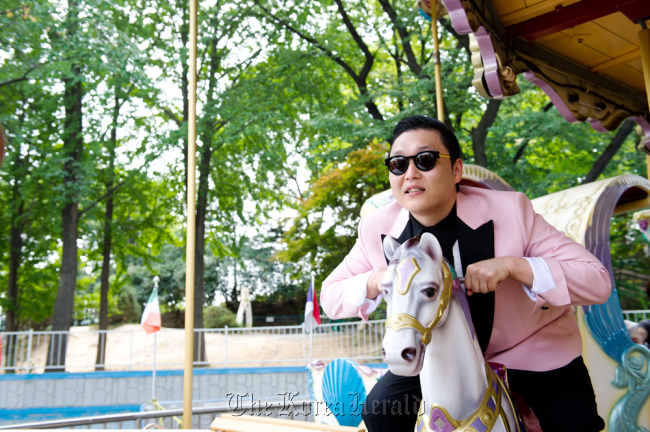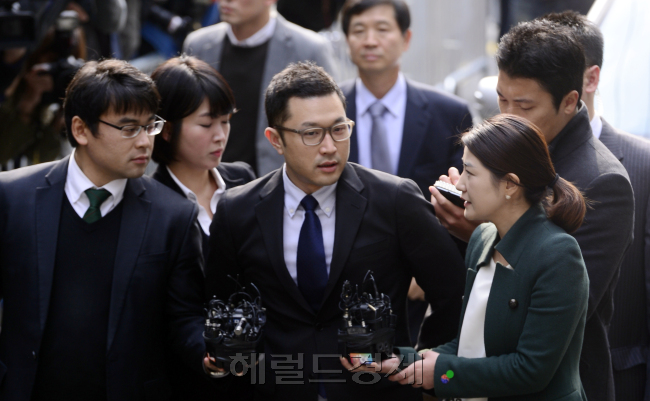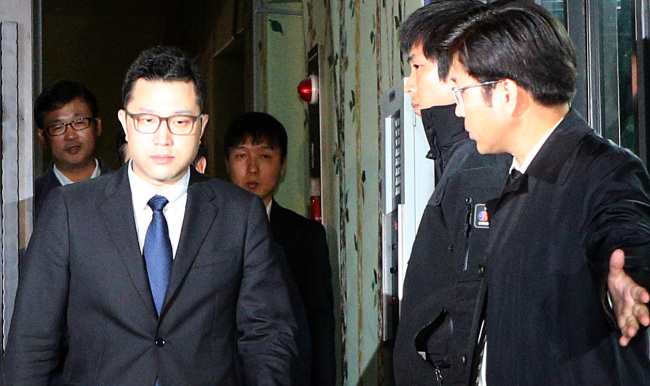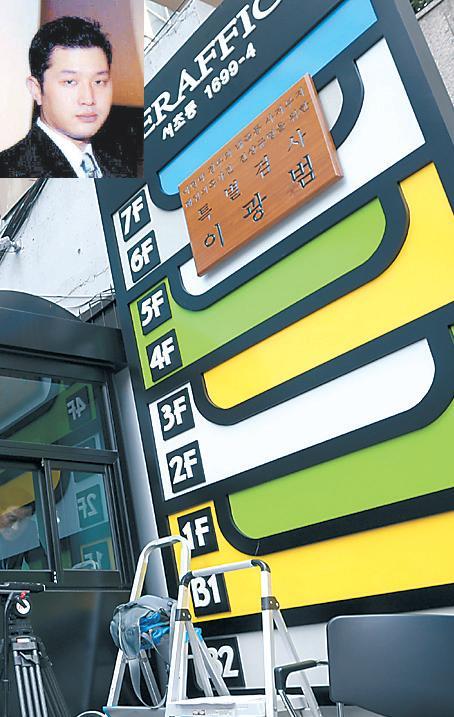
An American Peace Corps volunteer, front, is encouraged to
drink at a traditional Korean house in this undated photo.
/ Courtesy of The Korea Foundation
|
Peace Corps volunteers recount their
discovery of Korea in late 1960s By Kang Hyun-kyung
The first
group of American Peace Corps volunteers to come to Korea in the mid-1960s had
their own way of keeping warm during the icy winter weather, despite the poor
heating systems.
Some wore several layers of clothes, while others
recalled how Korean hospitality and warmth helped them survive the severe winter
weather.
Garry Katsel, who was in the Peace Corps service in Suwon, and
the Yongsan military base in Seoul from 1966 to 1969, said Friday that hot spicy
Korean kimchi helped a lot during the wintertime.
“I considered kimchi to
be my central heating system,” he said. “I got up in the morning in the middle
of winter. I always had a bowl of rice with some kimchi, usually a bit of soup.
I would be freezing once I got off my yi-bul (bedclothes). But once I got
kimchi, I started sweating.”
Katsel, who taught English at middle and
high schools in Suwon for two years, said at that time teachers had a rule to
follow regarding when to use coal stoves in classroom.

“When
I first came there, I remember the law was that when the temperature of the
classroom reached zero degrees centigrade, we had to put coal in the stove to
make a fire,” he said.
Like Koreans, Katsel said he used to wear several
layers of clothes to stay warm in winter.
He is one of four former Peace
Corps volunteers who joined a roundtable meeting with The Korea Times for an
interview at the Somerset Hotel in Seoul on Friday.
Katsel arrived in
Seoul last week for the first time since he left the country in 1969 for a
week-long trip sponsored by the Korea Foundation. Eighty-six former Peace Corps
volunteers joined the trip.
President of Friends of Korea Jon Keeton,
who worked with the Korea Foundation to organize the trip, said Korea is the
only country that has provided such a trip for Peace Corps volunteers.

Chris
Nottingham, who taught English at a middle school in the northeastern city of
Sokcho, Gangwon Province, in 1970 and ‘71, said he has a vivid memory of the
cold winter weather.
“In my school, we didn’t have a gymnasium. We used
to have the school assembly outdoors,” he said. “You can imagine what it was
like in the middle of winter in Sokcho, a fishing town, with cold wind coming
up. All the students were out there and teachers would stand in line in front of
them.”
When he wore his overcoat, Nottingham was told that Korean
teachers don’t do that and had to take it off.
“So I had to stand in
front of the teachers and students just like all the other teachers who were
without overcoats,” he said.
Poor but warm people The
Peace Corps volunteers said two major changes they observed from four decades
ago are in school uniforms and the disappearance of Chinese characters from
newspapers.
Bruce Knee, a former science teacher at a high school in
Sangju, North Gyeongsang Province from 1966 to 1969, said school uniforms are
much more colorful, fashionable and attractive now.
In those days, he
recalled, students wore the same black uniform and had the same
haircut.
“Students were well behaved and respectful, and teachers were
very supportive,” Knee said.
He shared his experience of a warm Korean
family during his three-year stay in Korea.
On a snowy Sunday morning in
February 1969, Knee said he joined his Korean friend on a trip to his home in a
distant village for the Lunar New Year holiday.
Knee and Silkyeong
couldn’t get a bus to a stop near his village. This didn't deter us, Knee said.
“I put my toothbrush and a cake of soap into my jacket pocket and off we
went through the slush and mud, over a railroad bridge (because the footbridge
had been washed away), through streams, and onto a boat that ferried us across a
river,” he said.
“We reached our destination over four hours later. What
a greeting! What hospitality! Silkyeong had a traditional, honest, hardworking,
well-mannered family barely touched by outside influences.”
Knee said his
Korean friend came from a farming family – materially poor but rich in their
love of life.
“Next morning since Silkyeong was on vacation and it was
still part of the Lunar New Year's country holiday I made most of the trek back
alone along the same route to attend my school duties. The bus still wasn't
running.”
Technology savvyThe former volunteers agreed
that one thing that has not changed between those days and now is Koreans’ zeal
for education and a national focus on technology.
Don Boileau, who
taught upper-level public administrators at the Central Officials’ Training
Institute in Seoul, said the country’s respect for technology was noticeable
even in the late 1960s.
He said he was enamored by the nation’s keen
attention to the spaceflight of Apollo 11 when it landed Neil Armstrong and Buzz
Aldrin, on the moon in July 1969.
The Korean government designated the
day a national holiday.
Boileau, now a professor at the Department of
Communication at George Mason University based in Fairfax, Virginia, said
schools closed and every Korean gathered to watch television.
His host
family didn’t have a television set at home, although the breadwinner was a
doctor in the upper-middle class. He and the family went to the house next door
where the third daughter of the family, who worked for a German pharmacy
company, had a TV.
“The whole family gathered there to watch the men
land on the moon. That was the day that I left Korea,” he said.
“The
country felt this was such advanced technology. That sort of thinking was there
in 1969.”
Boileau’s remarks were construed as meaning that the Korean
government’s prioritization of technology as a policy focus was a key driving
force that led to the country’s current global status in technology.
Time of changeMore than 1,000 young men and women from
America came to this country as Peace Corps volunteers from 1966 to 1981. They
were here at a time of change.
Nottingham witnessed two historical
events while he was here in the early 1970s as a Peace Corps volunteer and
several years later as a U.S. State Department official working at the U.S.
Embassy in Seoul.
“I vividly remember when I was in the Peace Corps in
1970 and ‘71, Kim Dae-jung, then the John F. Kennedy of Korean politics, was
coming to land in helicopter in Sokcho,” he said.
“I was here when the
former President Park Chung-hee was assassinated in October 1979. It was a sad
and turbulent time.”
After returning to the United States upon
completing his Peace Corps work in Sokcho, Nottingham came back to Korea in 1977
as a State Department official. The U.S. Embassy in Seoul was his first foreign
posting. He left Seoul two months after Park was assassinated.
Through
the Peace Corps, Nottingham said, he had the opportunity to experience Korea as
a young adult and from the point of view of a young professional and became a
keen observer of the nation.












